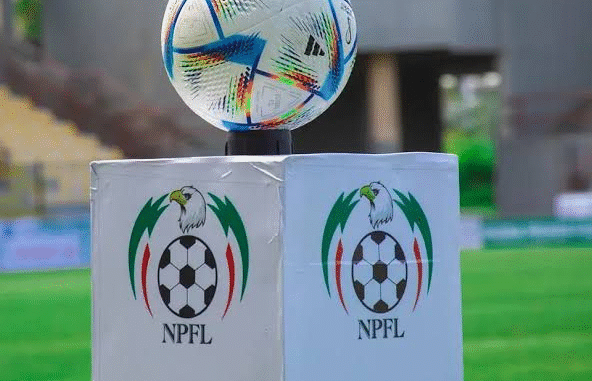
Relegation from the Nigeria Premier Football League (NPFL) is often seen as a devastating blow—both on and off the pitch. But for two recently relegated clubs, Lobi Stars and Heartland FC, it appears the story is far from over. Reports have emerged suggesting that both clubs are exploring controversial pathways back to the top flight by buying promotion slots from qualifying teams in the Nigeria National League (NNL). Is this desperation, ambition, or simply how football works in Nigeria?
1. Relegation and the Pressure to Return
In Nigerian football, relegation isn’t just about sporting disappointment. It comes with political embarrassment, financial setbacks, and public backlash—especially for state-owned clubs. The pressure to bounce back immediately is enormous, often leading to desperate measures.
2. Who Were the Relegated Clubs?
At the end of the 2024–2025 NPFL season, four clubs were relegated:
-
Heartland FC
-
Lobi Stars
-
Akwa United
-
Sunshine Stars
While each team had its struggles, Heartland and Lobi Stars have made headlines due to their bold attempts at re-entry into the NPFL.
3. The Heartland FC Story: A Relegation Yo-Yo
Heartland’s relegation saga is nothing new. After dropping to the lower division in 2023-24, they made a controversial return in 2024-25—not through promotion but via disqualification of another team. Now, after being relegated again, they seem intent on finding another way back.
4. The Beyond Limits Controversy
Heartland’s previous reinstatement stemmed from Beyond Limits Football Academy being denied promotion over ownership conflicts with NPFL side Remo Stars. Heartland, as the next best-placed club that met the league’s rules, took the spot—a loophole many felt was technically legal, morally questionable.
5. Lobi Stars: A Club Under Political Pressure
Sources confirm that Lobi Stars’ state government is keen on regaining elite status at all costs. An official hinted that internal restructuring is planned if a slot is secured. The push reflects how football success is tied to political legacy in many Nigerian states.
6. Slot Buying: Legal Loophole or Ethical Grey Area?
The idea of buying a promotion slot—offering cash to take over the position of a qualified club—is not technically illegal in Nigeria’s football ecosystem. But it certainly raises ethical concerns about fair competition and the spirit of the game.
7. How Slot Purchases Work in Nigerian Football
In practice, a club that earns promotion via the NNL Super 8 may sell their slot if they lack the resources to compete in the NPFL. A wealthier, relegated club could then buy their way back into the top tier. It’s not formal policy—but it’s also not forbidden.
8. State Governments: Driving Force or Disruptive Influence?
For Lobi and Heartland, the hand of government looms large. An official from one team revealed their governor is willing to commit ₦500 million for a slot purchase. In a country where resources are scarce, that figure is both impressive and controversial.
9. Is ₦500 Million Worth Top-Flight Football?
Spending ₦500 million to regain NPFL status might sound outrageous, but for many governors, football is a political and cultural asset. Success in sports often boosts public perception and offers distraction from larger governance issues.
10. Implications for Other NNL Clubs
Clubs that fight tooth and nail for promotion could be pushed out by wealthier suitors. This undermines not just morale but the whole competitive structure of the league system. For many, it’s like running a marathon and being overtaken by someone who took a shortcut.
11. Public and Media Reaction to the Reports
Fans have been split. Some argue it’s just business, while others cry foul at what they see as “football corruption.” Media outlets are keeping close tabs, waiting to see how the NPFL and NFF respond.
12. What the NPFL Rules Say
While the NPFL has guidelines on club ownership and licensing, there is currently no explicit rule barring slot transfers. This legal grey area may soon prompt the league body to implement clearer, stricter rules.
13. Has This Happened Before?
Yes, similar slot transfers have occurred in the past, particularly when newly promoted teams couldn’t meet financial or licensing standards. The practice isn’t new—but the scale of money being discussed now is unprecedented.
14. The Risk of Undermining Sporting Merit
At its core, football should reward performance on the pitch. If buying and selling spots becomes the norm, the risk is that fans lose faith, and the league loses its competitive edge. Where’s the motivation for lower-tier clubs if success is up for sale?
15. Conclusion: What’s Next for the NPFL and Its Integrity?
The situation facing Lobi Stars and Heartland FC is a microcosm of larger issues in Nigerian football. While their desire to return is understandable, doing so through financial means rather than sporting merit could have long-term consequences. The NPFL must now decide—enforce clearer rules or risk losing its integrity.
FAQs
1. Why were Heartland and Lobi Stars relegated from the NPFL?
Both clubs finished in the bottom four positions during the 2024-2025 NPFL season, resulting in automatic relegation.
2. What is slot buying in Nigerian football?
It involves purchasing the league spot of a club that has earned promotion but may lack financial or structural capacity to compete.
3. Is slot buying legal in the NPFL?
Currently, it exists in a grey area—there are no official rules prohibiting it, though it raises ethical concerns.
4. How much is being offered for a slot by these clubs?
An official revealed that ₦500 million may be available to secure a promotion slot from a qualified NNL team.
5. Will the NPFL take action against slot purchases?
So far, the NPFL has remained silent. However, increased media attention may force the league to address the issue with formal regulations.

Leave a Reply